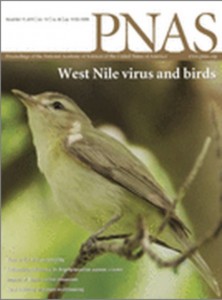
细胞分泌的胞外囊泡(EVs)为开发新的疾病治疗方法提供有吸引力的策略,但该领域进展受几个问题的限制:细胞外囊泡(EVs)的质量根据不用生产细胞的类型和生理状况而变化;细胞外囊泡(EVs)难以大规模分离得到;和效率测定难以开发。来自德克萨斯A&M健康科学中心的研究人员通过使用人骨髓间充质干细胞/基质细胞(MSCs)在无蛋白质培养基中培养产生细胞外囊泡(EVs)。用于该实验的MSCs具有免疫调节功能,将该MSCs用无蛋白化学试剂明确的细胞培养液培养、收集细胞上清、利用大规模色谱的方法提取细胞外囊泡(EVs),并开发出对小鼠创伤性脑损伤(TBI)神经炎症具有抑制作用的体内有效的实验体系。此外,在诱导创伤性脑损伤(TBI)后立即静脉注射细胞外囊泡(EVs)1个月以后缓解模式分离和空间学习障碍。
人们逐渐认识到细胞分泌的囊泡(EVs)是细胞间交流的主要方式。因此,利用细胞外囊泡(EVs)作为给药的载体也逐渐引起了人们的注意。这项研究结果通过开发可从骨髓来源的间充质干细胞提取大量细胞外囊泡(EVs)的方法而解决了细胞外囊泡(EVs)作为给药载体研究进展的几个限制因素。通过该方法分离得到的细胞外囊泡(EVs)可在小鼠体内缓解创伤性脑损伤。这对外泌体在治疗方面应用开发给予十分重要的科研依据。
版权归外泌体资讯网所有,欢迎转载,但请注明出处和原文链接!

原文来源:Kim, D. K., et al. (2015). "Chromatographically isolated CD63+CD81+ extracellular vesicles from mesenchymal stromal cells rescue cognitive impairments after TBI." Proc Natl Acad Sci U S A. IF=9.674
Extracellular vesicles (EVs) secreted by cells present an attractive strategy for developing new therapies, but progress in the field is limited by several issues: The quality of the EVs varies with the type and physiological status of the producer cells; protocols used to isolate the EVs are difficult to scale up; and assays for efficacy are difficult to develop. In the present report, we have addressed these issues by using human mesenchymal stem/stromal cells (MSCs) that produce EVs when incubated in a protein-free medium, preselecting the preparations of MSCs with a biomarker for their potency in modulating inflammation, incubating the cells in a chemically defined protein-free medium that provided a stable environment, isolating the EVs with a scalable chromatographic procedure, and developing an in vivo assay for efficacy of the cells in suppressing neuroinflammation after traumatic brain injury (TBI) in mice. In addition, we demonstrate that i.v. infusion of the isolated EVs shortly after induction of TBI rescued pattern separation and spatial learning impairments 1 mo later.
外泌体资讯网 PNAS:细胞外囊泡可缓解创伤性脑损伤后认知障碍




